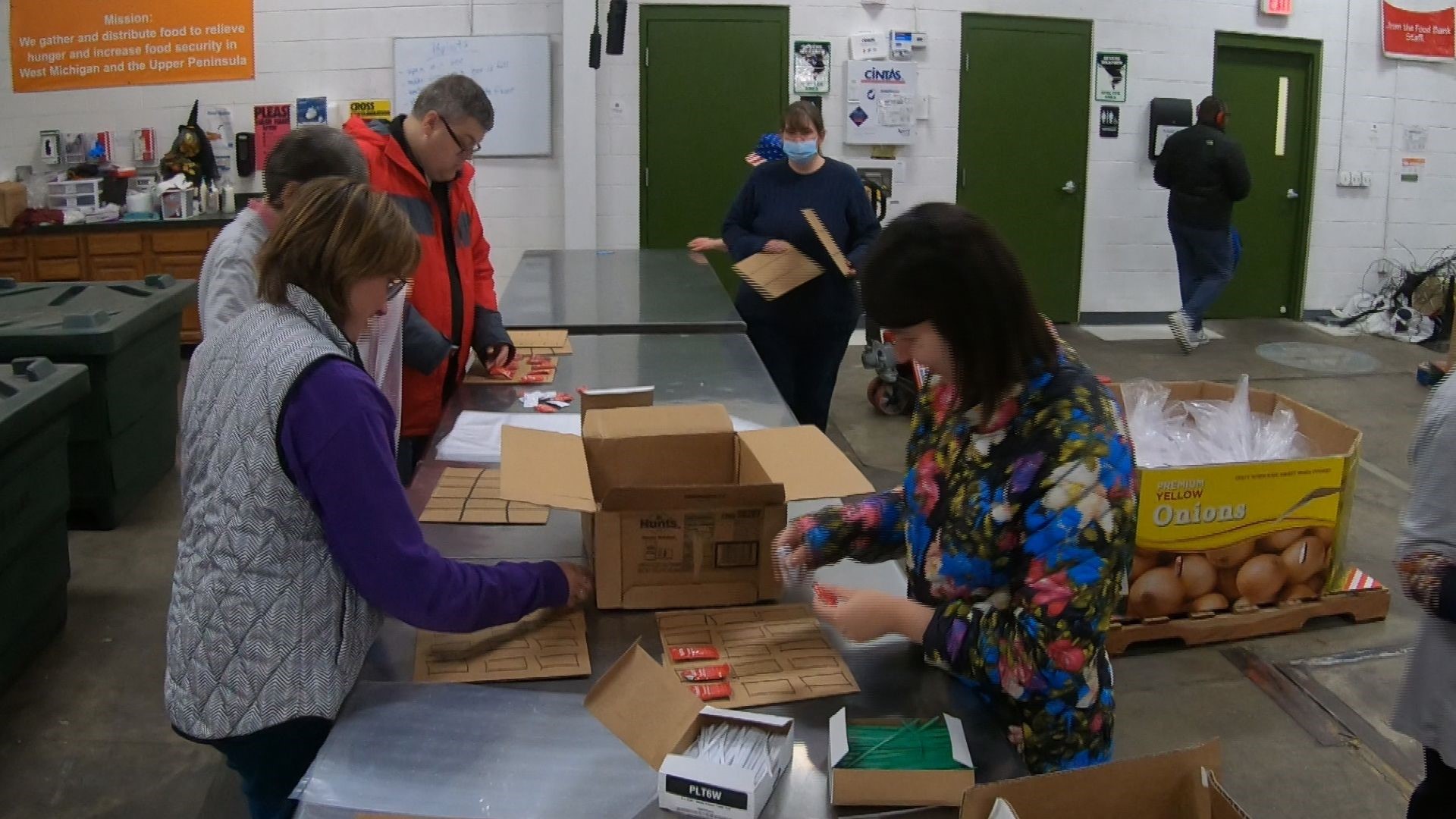GRAND RAPIDS, Mich. — Families across West Michigan need food, even more now than during the COVID-19 pandemic. Food banks, however, are seeing fewer donations and the lowest inventory in decades.
Normally the warehouse at Feeding America West Michigan, an organization that gathers and distributes food in West Michigan and the Upper Peninsula, is filled top to bottom with food.
Empty shelves at their facility is usually a rare sight – but not this year. As inflation hits a 40-year high, food banks are feeling the pinch.
"We've seen more and more people coming for help and more people coming for the first time than we even saw during the pandemic," said Ken Estelle, President & CEO of Feeding America West Michigan. "I think this continued inflation has taken a toll over a lot of folks on the edge and this has pushed them over the edge."
Demand for food resources has gone up 20% or more and at the same time, food donations are dropping 15 to 20%.
U.S.-grown food donations or USDA commodities, which the food bank depends on, are down 50%, which is forcing the bank to buy more food to fill in the gap.
"We're seeing high costs of diesel fuel to transport the food that we have to buy and at the same time we're seeing a higher need in lower food donations and lower USDA commodities."
Senate Bill 885, introduced by Sen. Roger Victory of Ottawa County last year, may provide the monetary support food banks need.
The bill would provide a $15 million grant for food banks across the state to buy Michigan-made products and produce.
"We will make sure that these working families have accessibility to a nutritional diet. We have this infrastructure we're standing in. We have Feeding America and other institutions that have this distribution system there," said Sen. Roger Victory (R) of Ottawa County.
"[The bill] helps extend the harvest cycle with farmers and gives the market to the farmers, but it gives us significant food opportunities to help people struggling right now especially with produce," said Estelle.
Victory says the bill has bipartisan support, though it's unclear if the bill will pass before next year.
Estelle believes demand for food will remain high and supply low for the next several months.
►Make it easy to keep up to date with more stories like this. Download the 13 ON YOUR SIDE app now.
Have a news tip? Email news@13onyourside.com, visit our Facebook page or Twitter. Subscribe to our YouTube channel.

